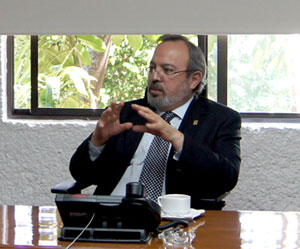Dr. Polióptro Martínez-Austria is a civil engineer from Mexico's National Polytechnic Institute (Instituto Politécnico Nacional), with a master degree and a PhD in hydraulic engineering from the National Autonomous University of Mexico (Universidad Nacional Autónoma de México - UNAM). Dr. Martínez-Austria is not only General Director of the Mexican Institute of Water Technology (Instituto Mexicano de Tecnología del Agua – IMTA), but one of its founders.
In an interview for the AMEXCID, Dr. Martínez-Austria, who is also Vice President of the Council of the International Programme of UNESCO, and Director of the Chair UNESCO-IMTA "Water and Knowledge Society – Agua y Sociedad del Conocimiento", talks about IMTA's success, as well as of its leadership role in the field of water treatment in Latin America.
- What are the reasons of IMTA's success as a research center?
PMA.- The centers that have been most successful in the international area are multidisciplinary centers and this is what IMTA is. At almost any university departments of hydraulics, chemistry, or science faculties are very focused on their specific discipline. At IMTA we are working specifically on the issue of water and we bring together all the necessary disciplines; it is therefore common that irrigation specialists, experts in water purification and communication professionals participate in our projects. This has been a very significant advantage since the conception of the institute. It has not been easy, but we did it and we are involved in very comprehensive projects.
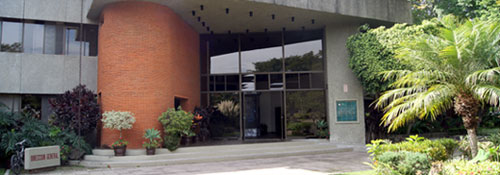
- Tell us about the beginning of IMTA and what is its experience in international cooperation?
PMA.- I was given the responsibility to build this institution, which was created by a presidential decree on August 7, 1986. When I arrived there was no laboratory or anything: a computer for every five researchers… I was at that time working at the UNAM and had a good position and someone said to me: "why are you going there? That won't work". I answered: "if the issue of water is important it has to work and it is going to work; it has to strengthen itself because we are experiencing a real problem".
The IMTA emerged through an international project supported by the World Bank and the FAO, and was a natural outcome of international cooperation. We cooperate with several countries and international agencies. Consequently, the IMTA remains at the forefront, because our specialists are in contact (as much as possible) with the best specialists from around the world in their specific fields and that keeps them up-to-date; through these contacts we collaborate with several universities.
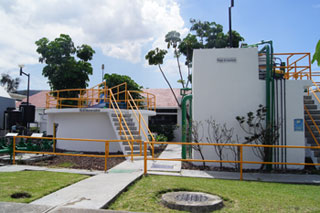 The institute has a strong tradition of cooperation with Japan; we designed our own water treatment plant using Japanese technology and to date it remains a training center in which people are thought the water treatment technology we are developing. We also offer cooperation courses for Central America, to transfer our experience with this application.
The institute has a strong tradition of cooperation with Japan; we designed our own water treatment plant using Japanese technology and to date it remains a training center in which people are thought the water treatment technology we are developing. We also offer cooperation courses for Central America, to transfer our experience with this application.
Through international cooperation IMTA won an international competition to perform hydrological balances of various sources in Costa Rica. Recently, we developed a plan for some cities in Bolivia who needed to improve their efficiency in the use of water. As a consequence, Bolivia could access bigger loans and has now enough funds to implement our recommendations. With the Quebec Center for Industrial Research we developed two patents that are in the process of being registered in Mexico, this joint Canadian-Mexican technology is in use in Mexico.
-What about the cooperation with international organizations?
PMA.- We are working closely with the UNESCO and the OECD. With UNESCO, we have an international work program coordinated by IMTA. We are also one of the five members of the Bureau where we represent all of Latin America, enabling us to influence research processes and ensure benefits for our region. This also allows us to bring to Mexico the latest technology and scientific developments.
With the OECD, we work on topics very relevant to Mexico, like water governance. Recently, we had a Regional-International Seminar on Water Governance in Mexico City bringing together experts from the region. The OECD and IMTA will take its conclusion to the World Water Forum in Marseille. That speaks of your capacity to have some influence in the international field of science, which is our contribution through international cooperation.
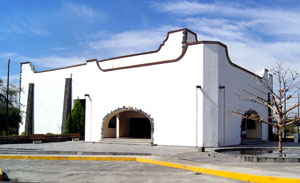 - Are the areas of the Institute self-sufficient, do they generate their own resources?
- Are the areas of the Institute self-sufficient, do they generate their own resources?
PMA.- This is an international tendency. Recently we did a market research and we review the Danish Hydraulic Institute, as well as some French institutions. One of the most important indicators for each of them was their ability to self-generate resources. IMTA has good capacities in this regard. In fact, the institute has increased its revenues by 200% in the past five years only by performing well, without necessity to work too much in terms of negotiations.
Once you have the ability, even if minimum, the resources begin to flow. The institute has no problem getting resources, because the problem of water is important and we have the ability to help solve it.
- Does the IMTA links together science university and private company?
PMA.- Yes. The institute develops patents and then licenses them for use in the industry. In the past five years IMTA has established patent records: between four and nine per year, of which we obtain three or four that we can exploit.
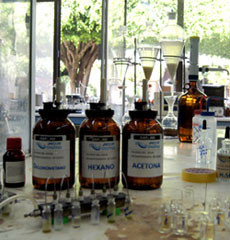 Recently IMTA partnered with Hidrónica, a private company, and with CINVESTAV of the Polytechnic Institute, for the development of a new measurement system. The development belongs to the private company and this system is now winning competitions because of its combination of quality and printing. In the last CONACYT innovation fair, it won the first prize. It is a very interesting mechanism: development belongs to the industry, it is for the most part financed by the Mexican Council of Science and Technology (Consejo de Ciencia y Tecnología) jointly with the Mexican Ministry of the Economy, and the university generates it.
Recently IMTA partnered with Hidrónica, a private company, and with CINVESTAV of the Polytechnic Institute, for the development of a new measurement system. The development belongs to the private company and this system is now winning competitions because of its combination of quality and printing. In the last CONACYT innovation fair, it won the first prize. It is a very interesting mechanism: development belongs to the industry, it is for the most part financed by the Mexican Council of Science and Technology (Consejo de Ciencia y Tecnología) jointly with the Mexican Ministry of the Economy, and the university generates it.
We are now about to sign a consortium to have a company operates one of our technologies. Although, it is confidential information, we could say that we are working with very large companies (multinationals) with which we are negotiating the release of some of the institute's technology.
- What are your expectations following the recent establishment of the AMEXCID and the promulgation of the Mexican Law on International Development Cooperation?
PMA.- We are really pleased with the existence of an agency dedicated to cooperation. We have seen that the Japanese International Cooperation Agency (JICA) has a fluid and successful working system with Japanese universities. If the AMEXCID could adapt this association system, we would open a highway through which we could transit from place to place.
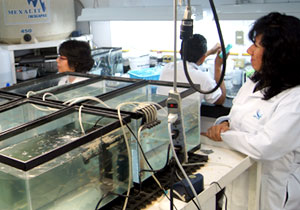 Traditionally international cooperation resources are very limited and tied to very specific actions, which do not allow for comprehensive or long term programs. For us the creation of the agency is an opportunity to have in the near future a comprehensive project involving technology transfer. This process takes years, and if it is not monitored, it can become diluted and bring very limited results. That is why we hope that the agency will have a long-term, program. This is important.
Traditionally international cooperation resources are very limited and tied to very specific actions, which do not allow for comprehensive or long term programs. For us the creation of the agency is an opportunity to have in the near future a comprehensive project involving technology transfer. This process takes years, and if it is not monitored, it can become diluted and bring very limited results. That is why we hope that the agency will have a long-term, program. This is important.
México is already outside of the advantages of some financing programs, but underdeveloped countries, or the ones with less resources, have access to all these financing sources. What they lack is probably technical staff that could implement programs and support their execution. We can cooperate with these third countries. Because the institute has a good reputation in Latin America, we are consulted and we are invited. There are several underutilized funds in the region that we could use.
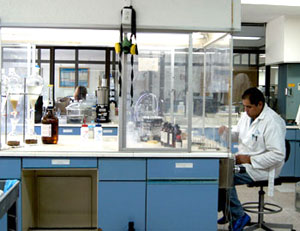 Thanks to its human resources, expertise and experience in international cooperation, the IMTA was designated as the implementation entity for funds of the Kyoto Protocol designated to adaptation and climate change. These resources were available for years but had not been brought to Mexico… Although the rules to manage them are very strict, the IMTA has experience not only technical but administrative, because since its creation the institute has managed funds through FAO and World Bank programs. Auditors and economists reviewed everything and concluded that the ITAM is able to manage those funds.
Thanks to its human resources, expertise and experience in international cooperation, the IMTA was designated as the implementation entity for funds of the Kyoto Protocol designated to adaptation and climate change. These resources were available for years but had not been brought to Mexico… Although the rules to manage them are very strict, the IMTA has experience not only technical but administrative, because since its creation the institute has managed funds through FAO and World Bank programs. Auditors and economists reviewed everything and concluded that the ITAM is able to manage those funds.
The institute does not see cooperation as a means to attract money to Mexico, but as a way to carry Mexican technology, knowledge and support to regions of priority to our government, like for instance, Central America, South America and the Caribbean.
- What is IMTA contribution to water management?
PMA.- I am convinced that IMTA made a contribution in this area. Contributions cannot be measured because they are fundamentally not quantifiable and intangible. However, if IMTA did not exist, water management would be much lower than before. Something similar could be done in Central America: like a regional water center… an important thing, large, with some impact, instead of fifty little water treatment plants… Imagine a center there that could forecast regional weather, staffed with meteorologists, equipped with radars, which could improve civil protection… how many lives could be saved with such a center, capable of promoting proper use of natural resources; of convincing villagers not to continue farming on 45 degrees slopes and exhausting natural resources; a centre that could participate in the design of irrigation systems, the improvement of water supply, which could take care of its lakes, these wonderful treasures of Central America which are becoming contaminated. I believe it would a very interesting project.
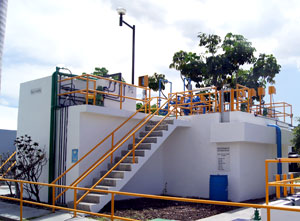 The water problem in this region is becoming increasingly important. We are going through a very severe drought in the north of México, and there are records of very severe droughts in Central America. The number of historians, anthropologists and archeologists who are saying that the fall of the Mayan Empire -which covered the region- was the product of a great drought is increasing. If climate change occurs, there may be a risk of long droughts in Central America and Mexico, as well as in many countries of the world. But if we create the capabilities to get it resolved we will then progress in the solution of the problem before it hits on us.
The water problem in this region is becoming increasingly important. We are going through a very severe drought in the north of México, and there are records of very severe droughts in Central America. The number of historians, anthropologists and archeologists who are saying that the fall of the Mayan Empire -which covered the region- was the product of a great drought is increasing. If climate change occurs, there may be a risk of long droughts in Central America and Mexico, as well as in many countries of the world. But if we create the capabilities to get it resolved we will then progress in the solution of the problem before it hits on us.
